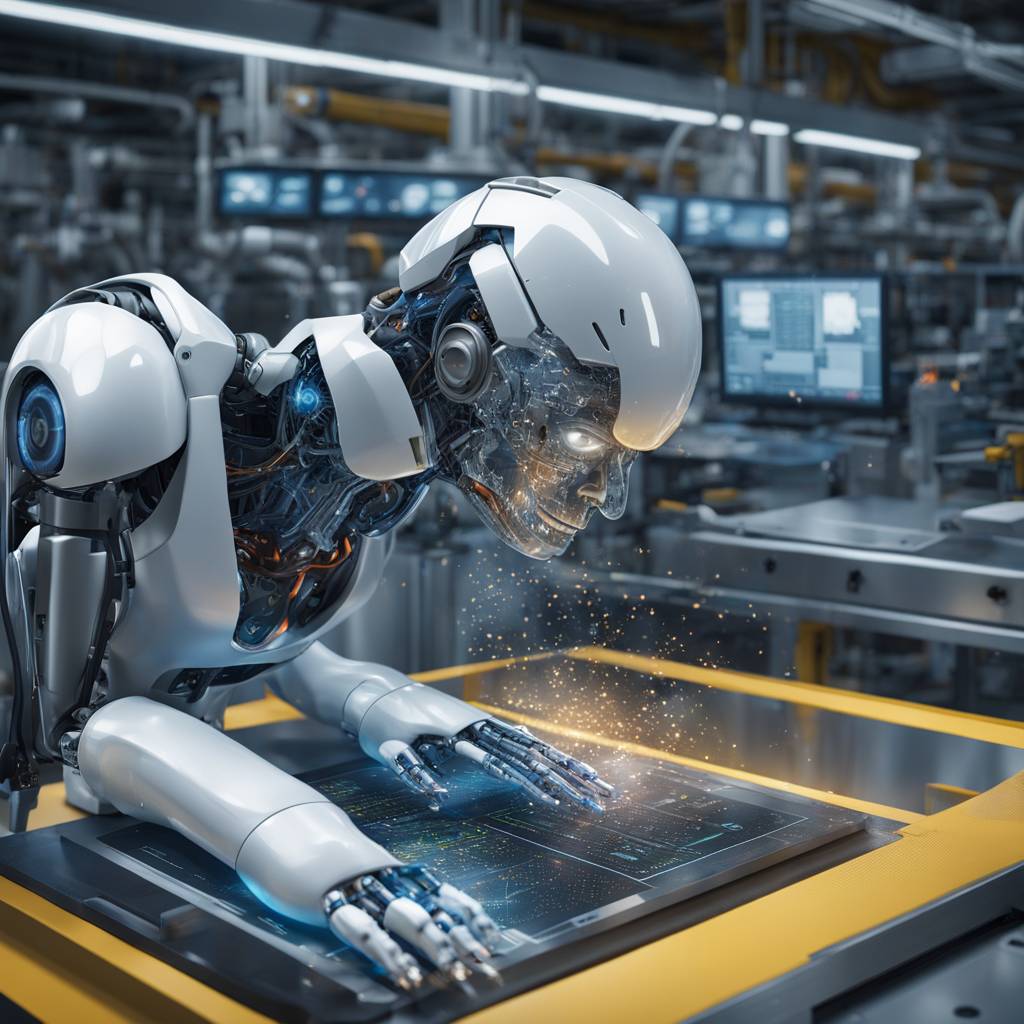In 2024, AI is impacting manufacturers but the reality is that it is more hype than practical implementation. Despite rosy predictions and general discussions about the future of AI in manufacturing, the actual impact of AI on the industry is limited. Small businesses are only scratching the surface with basic AI applications, while big companies like Klarna, BMW, Amazon, and Tesla are investing heavily in AI-driven technologies to streamline operations and increase efficiency. Corporate investment in AI is surging, but the technology is still predominantly a big company game.
The current AI solutions for manufacturing are mostly custom-built applications tailored to the specific needs of large corporations with significant budgets. While AI-driven tools will eventually become more widely available, for now, companies looking to leverage AI in their manufacturing processes will need to invest in building custom solutions. AI is being used to upgrade existing software and hardware in manufacturing rather than creating entirely new technologies. Sensors and AI are being added to existing machinery and equipment to monitor performance and improve efficiency.
Generative AI is a powerful tool with significant potential, but it is still in its early stages. Current AI applications are built around the GenAI model and are constantly evolving as new technologies are developed. While AGI, the next stage of AI development where machines can perform as well as or better than humans, is on the horizon, it is still a few years away. The limitations and risks associated with GenAI technology, such as misinformation and loss of control, are factors that are being addressed as the technology evolves.
Manufacturers looking to stay up to date with AI developments in the industry should engage with their vendors, attend industry conferences, and visit trade shows to see new products and technologies in action. Companies are rolling out new AI-powered products and technologies that are transforming manufacturing processes, so staying informed and proactive in seeking out these advancements is crucial in adapting to the evolving landscape of AI in manufacturing in 2024. While AI is still in its early stages in manufacturing, the potential for disruption and transformation in the industry is significant as hardware, software, and equipment makers continue to invest heavily in AI technologies.


